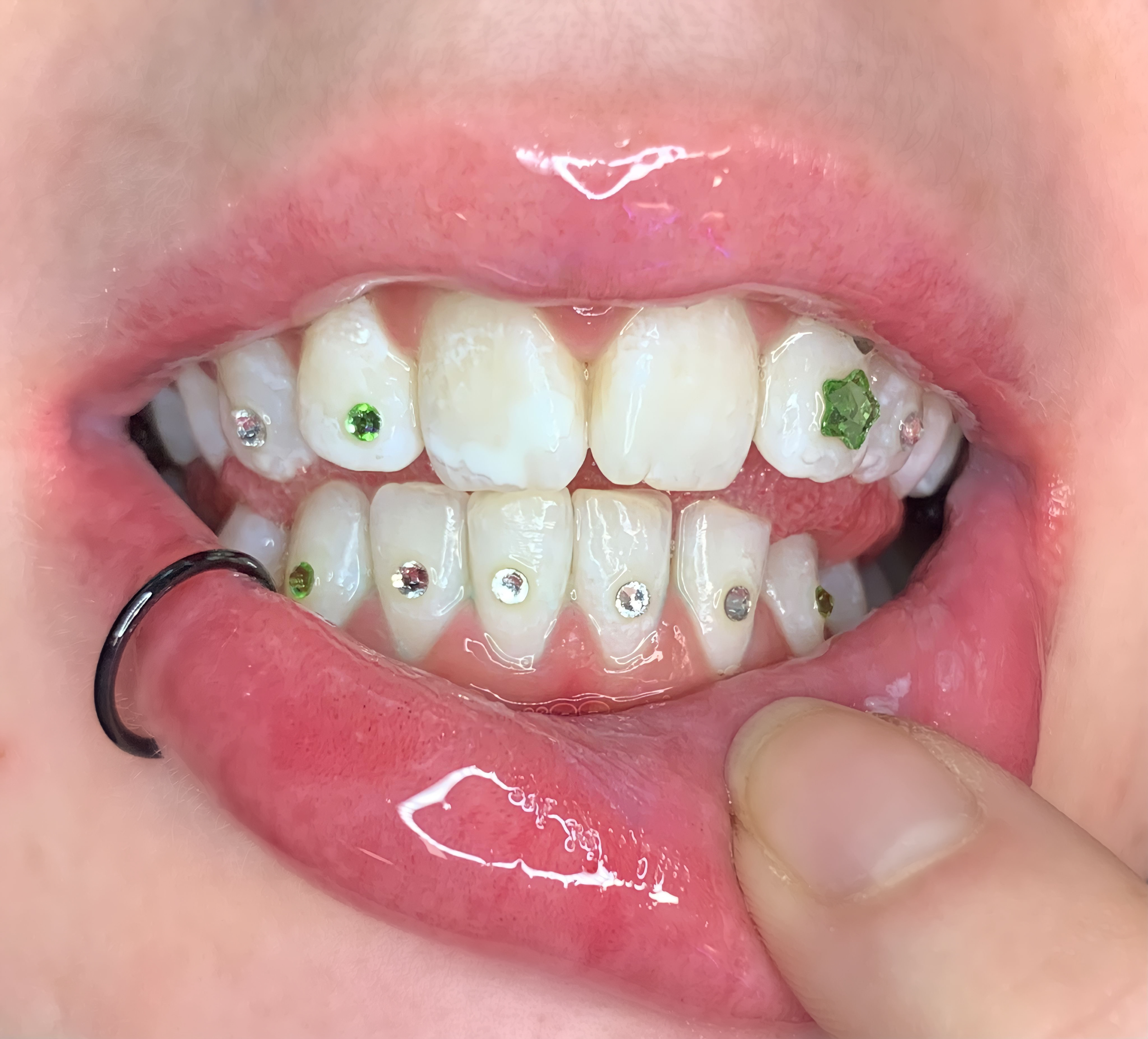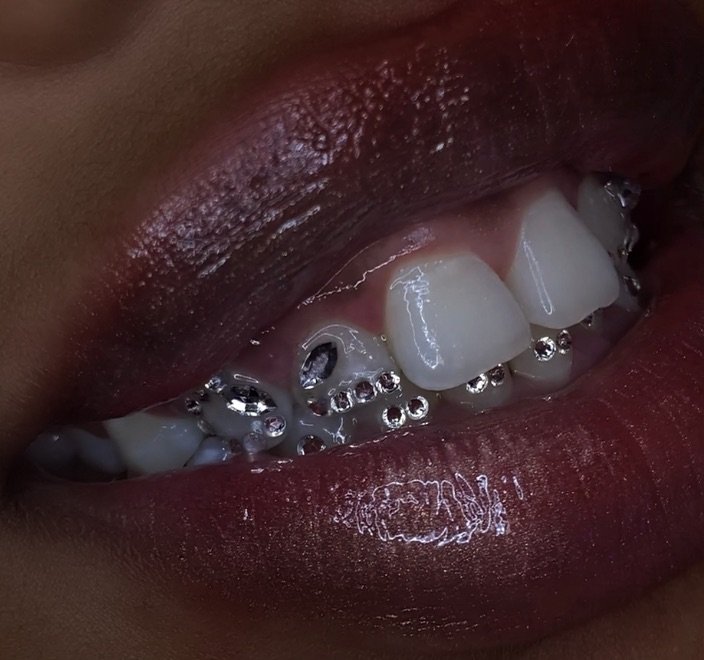
all about tooth gems
100% AUTHENTIC SWAROVSKI. SEMI-PERMANENT. NO DRILLING. NO PAIN. LASTS UP TO 2 YEARS.
what are tooth gems?
A tooth gem is a semi-permanent, temporary jewel that is applied to the tooth’s enamel surface with dental bond. The first appearance of the early Tooth jewel dates back to the ancient Mayan civilisation where coloured stones like Jade, pyrite and obsidian embellished the tooth as a symbol of wealth, status and luxury.
The modern day tooth gem boasts a wide selection of flat-back Swarovski crystals, synthetic opalite charms and authentic 18 karat gold tooth charms without the pain and invasiveness of ancient methods
how are tooth gems applied?
The process of getting a tooth gem attached is painless as there is no drilling required. When applied by a trained gemist, Tooth gems cannot cause irreversible damage to your enamel and can be easily removed by a Dental Professional.
At The Gemist Hub, we use 100% authentic Swarovski Tooth Gems from Austria and 18 Karat Gold Tooth Charms handcrafted from France and Australia.
how long do tooth gems last?
Depending on the tooth placement, your gem design and lifestyle, your Swarovski Tooth Gem can last from 1 month - 2 years. 18 Karat Tooth Charms can last from 6 months - over 2 years.
Dental conditions that compromise the enamel may affect the longevity of your tooth gem.
who cannot get tooth gems?
There are a number of exceptional circumstances that may deem you or certain teeth inappropriate to for tooth gem application.
We do not bond to filling material, porcelain crowns, or if you are undergoing orthodontic treatment.
If you present signs of dental disease, including bleeding gums, cavities, soreness or pain, please seek dental intervention prior to your tooth gem appointment.
Pregnancy and breastfeeding does NOT affect your eligibility
If you are under 17 years of age, you are required to obtain parental consent and have a parent/guardian present at your appointment
If you regularly wear an overnight retainer*
*New retainers will be required after application. Service not provided at The Gemist Hub
more of your burning qs answered
-
Swarovski crystals are made in Austria from quartz sand and a number of natural minerals to produce a brilliant trademarked, precision cut glass crystal. Since 2012, Swarovski has discontinued the use of lead in all their products.
-
No. Swarovski crystals are man-made glass that offer diamond-like aesthetic properties due to their intricate, fine-cutting technology since 1892.
Comparatively, natural diamond is a naturally-occuring carbon mineral that is best known for it’s luxurious brilliance. Synthetic (lab-grown diamond) have become a more environmentally sustainable alternative to ground-mined diamond.
-
Diamonds are rarely adapted as tooth gems due to their hardness, poor retention and the invasiveness of their application to the tooth’s enamel.
Diamonds also come at a greater price point as tooth gems and special preparation of the diamond is required for optimal retention.
*Diamond Tooth Gems are available via pre-order only
-
Tooth gems can pose a number of risks to the dental and soft tissues when applied negligently. This includes,but is not limited to;
Ulcerations
Soft tissue cuts and grazes
Fine-line enamel cracks
Gum diseases (gingivitis or periodontitis)
Dental decay
Inhalation risk during application
Unaesthetic appearance due to staining or poor application techniques
For your safety, please seek the advice of a dental professional and opt for services provided by registered dental practitioners.
Most proclaimed ‘Tooth gem technicians/specialists’ have no formal dental training.
-
In Australia, tooth gems are an unregulated and unaccredited service. This means, anyone who has taken an unaccredited training can provide you with tooth gem services.
For your safety, please seek the advice of a dental professional and opt for services provided by dental practitioners only.
Dental Practitioners are;
Dentists
Oral Health Therapist
Dental Hygienist
Dental Therapist
Dental Specialist
-
For your safety, do NOT attempt to remove your tooth gem at home using tools such as tweezers, nail clippers and or floss.
Please seek a dental practitioner to carefully and thoroughly remove your tooth gem.
Tooth Gem technicians CANNOT remove tooth gems if they are not practitioners (registered with AHPRA).
-
Non-dental practitioners include;
Dental assistants
Dental Technicians
Dental Receptionist
Teeth whitening specialists
Tooth gem technicians
Tattoo artists
Lash and beauty artists
-
Allergy to tooth crystals themselves are rare.
However, an allergy to acrylates (a component of dental fillings) can affect your ability to receive tooth gems.
If you have experienced an allergic reaction after dental treatment, please inform your professional prior to your appointment.



